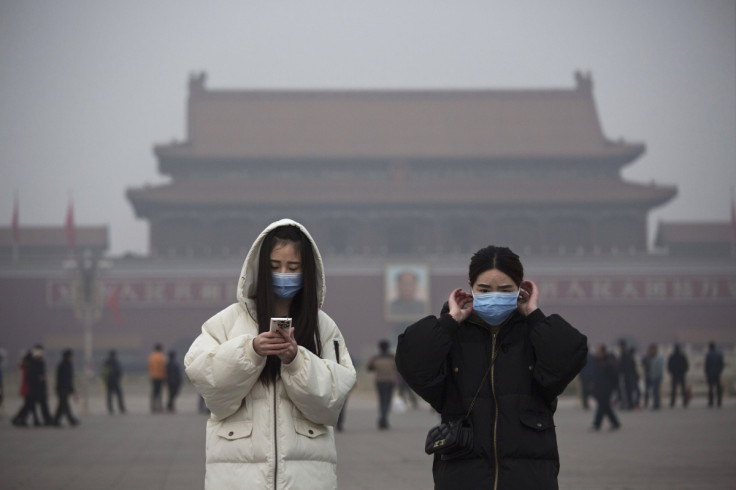China imposes $21.8m in fines, detains 720 people in pollution crackdown
The National People's Congress has also passed new laws to tax polluters.
Following an increasing number of smog warnings in 2016, China is taking serious measures to control pollution in the country. Local media reported, around 720 people were detained for violating environmental protection laws last year and over $21.8m (£17.8m) worth of fines were imposed.
According to information revealed at a national environmental work conference, Beijing had rejected 11 projects worth 97bn yuan ($14bn, £11.4bn), which did not meet environmental standards.

China issued its first red alert for smog in 2016 on 16 December and the first for 2017 on 3 January. In a desperate effort to control the situation, Beijing set up an environmental police force to track and arrest polluters.
The National People's Congress also passed a new environmental tax in December that would target polluters of air, water and solids. Noise pollution is also among the things that can be taxed.
The tax rate will be 1.2 yuan ($0.17) per unit of atmospheric pollution, 1.4 yuan per unit of water pollution, 5 yuan per tonne of coal waste and 1,000 yuan per tonne of hazardous waste.
Industrial noise polluters will be levied 350 yuan per month if they exceed limits by 1 to 3 decibels, 700 yuan for 4 to 6 decibels and 11,200 yuan per month for 16 decibels and above.
Despite the measures, the effects of the new tax will take a while to show since the law only goes into effect from January 2018.
"China's continuing reliance on fossil fuels, especially in the north, made the fight against pollution difficult," China's environment minister, Chen Jining, said last week. Despite the high levels of pollution attributed to the country's race to boost economic growth, the minister believes that they will be able to solve the issue much faster than other countries.
"They needed 20–40 years to solve it. I believe we will do it faster than they did. We shouldn't lose confidence because of a few days of heavy pollution," he said.
© Copyright IBTimes 2024. All rights reserved.






